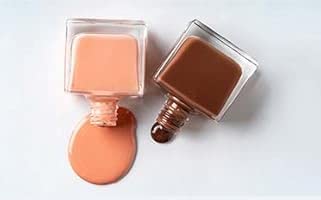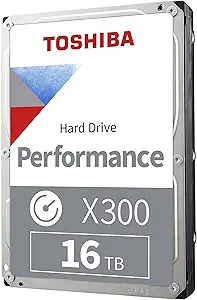Basic Info.Model NO.customization or standardTypePump
CasingMaterialas Customer RequestTrademarkRH METAL or OEMTransport
PackageSea Transportation PackingSpecificationcustomization or
standardOriginChinaProduct DescriptionPump A pump is a mechanical
tool that gives enough pressure to move the liquid through the
system at the desired flow rate. Therefore it is a means to change
mechanical work into fluid energy. The pump can be widely
classified as a centrifugal pump and positive displacement pump. So
far, centrifugal pumps are the most widely used pumps.Types of
Pumps and their working principles with applications1.1Dynamic
Pumps1.1.1Classification of Dynamic Pumps1.1.2Centrifugal
Pumps1.1.2.1Radial Flow:1.1.2.2Mixed Flow :1.1.2.3Axial
Flow:1.1.2.3.1Axial, Radial and mixed flow pumps impeller
dimensions1.1.2.4Axial Split-Case Pumps1.1.3Vertical
Pumps1.1.3.1Line-shaft Pumps:1.1.3.2Submersible
Pumps1.2Displacement Pumps1.2.1Classification of Displacement
Pumps1.2.2Reciprocating pumps:1.2.2.1Plunger / piston type
pumps:1.2.2.2Diaphragm pumps :1.2.3Rotary Type Pumps1.2.3.1Rotary
Lobe Pumps1.2.3.2Screw Pumps1.2.3.3Progressive Cavity
Pumps1.2.4Pneumatic PumpsMaterial used for Pump HousingsDuctile
cast iron is one of the most popular casting materials for pump
housing. However, they can be made from cast iron or gray iron too.
Cast iron houses mainly tend to withstand wear very well and need
more rare replacement.Usually, after the manufacturer of casting
housing pumps receive CAD images, molds are made from the material
needed pump housing thrown into the tolerance needed.Housing Pump -
TestingPumps and pump houses undergo a lot of wear because of the
nature of these components. Therefore it is important to test these
two entities for fatigue, corrosion, and reduction in thickness.
There are regular laboratories that carry out the pump housing
test. What is Pressed Pump Construction?Pressed pumps are
typically made from sheet metal cut to shape and formed to the
desired shape. The metal is usually only a few mm thick and can be
deformed with relative ease if a blow or knock is delivered to the
casing. Pressed pumps are typically designed for simple
applications using clean fluids which do not contain solids. Such
pumps are usually similar in design by being closed coupled and
directly driven by a motor.The construction of pressed pumps is
usually used in conjunction with plastics, cast iron and rubber
parts for submersible pumps to enable the pump to be more rugged
and durable. In end-suction pumps the complete casing is made in
stainless steel, however, outlet fittings are usually welded to the
casing. This can cause a couple of issues such as the weld can leak
due to weld perforation and connections are not usually designed to
withstand high pressures. CASTPressedRuggedMetal easy to
deform. Usually welded in parts.Longevity through design with wear
rings, & long coupledDesigned to be replacedBack pull out
designDesigned for clean fluidsAccommodate a wide range of
fluidsEfficientParts can be in a variety of different metals and
utilize additives for different fluid handling e.g. aluminium
bronzeUsually used in conjunction with plastics and gaskets which
chemical compatibility also needs checkingThickness means it can
accept higher amounts of wear, and is unaffected by small solids
passing at high velocityOnly available in 304 or 316 plated and is
usually spolt welded during manufacture. The welds are usually the
first place to see chemical attack when handling non compatible or
aggressive fluids. What is a Cast Pump?Cast pumps are
manufactured quite differently and are ruggedly designed. Pumps are
manufactured using molten metal formed into shapes via lost foam or
sand casting within moulds. The casings are then machined according
to designed tolerances. Due to the method of casting, castings are
made thick to allow for differences during casting. As castings are
thick they ensure many years of trouble-free service. Some models
are designed to be long coupled and are able to accommodate a
variety of mechanical seal designs ensuring suitability for a wide
variety of process fluids thus extending their application across a
wide variety of industries. Cast pumps are designed to
accommodate wear rings which not only improve pump efficiency but
wear in place of the casing. The wear rings are placed either side
of the impeller and are then replaced as the pump wears prolonging
pump casing life and maintaining efficiency.Cast pumps are robust
enough to accommodate large solids passing through as due to the
density of the metal the casing will not deform should solids pass
through the pump. Impellers are also dense enough to handle
knocks and will not be misshaped.Castings can be manufactured in a
variety of different blends to accommodate fluid requirements from
stainless steel, to 316L, aluminium bronze or just bronze meaning a
pump can be created for your specific fluid requirement or design
life. Pressed pumps are
Related products about Cast Pump, Pump Housing, Pump Body, Submersible Pumps, Pneumatic Pumps
-
 Waste Tyre Plastic Recycling Machinery Machine Tire Crusher Production Line Rubber Crumb Grinding Machine Equipment Tire Shredder
Waste Tyre Plastic Recycling Machinery Machine Tire Crusher Production Line Rubber Crumb Grinding Machine Equipment Tire Shredder
-
 Stretch Plastic Blowing Pet Bottle Making Blow Molding Machine Bottles Stretch Automatic Pet Bottle Blowing Machine
Stretch Plastic Blowing Pet Bottle Making Blow Molding Machine Bottles Stretch Automatic Pet Bottle Blowing Machine
-
 Waste Plastic Pet Bottle, Water Bottle Flake, PP/HDPE/LDPE PE Film Jumbo Woven Bags Plastic Crusher Machine, Plastic Crushing Washing Recycling Machine
Waste Plastic Pet Bottle, Water Bottle Flake, PP/HDPE/LDPE PE Film Jumbo Woven Bags Plastic Crusher Machine, Plastic Crushing Washing Recycling Machine
-
 Type 2 Wall-Mounted Electric Car Charging Station 7kw /11 Kwelectric Vehicle Charging Station Home Wallbox AC EV Charger Single Phase or 3three Phase
Type 2 Wall-Mounted Electric Car Charging Station 7kw /11 Kwelectric Vehicle Charging Station Home Wallbox AC EV Charger Single Phase or 3three Phase
-
 G-View G12W Wholesale Auto Car LED Headlight Bulb High Power H13 H11 9005 H7 H4 Car LED Headlights LED Car Lights
G-View G12W Wholesale Auto Car LED Headlight Bulb High Power H13 H11 9005 H7 H4 Car LED Headlights LED Car Lights
-
 New Design Porcelain Round Plates Dinner Set for Wedding and Banquet
New Design Porcelain Round Plates Dinner Set for Wedding and Banquet
-
 China 2023 New Design Super Soft 100% Polyester Microfiber Knitted Oversized Decoration Hoodie Blanket
China 2023 New Design Super Soft 100% Polyester Microfiber Knitted Oversized Decoration Hoodie Blanket
-
 Handmade Art Creative Materials Thickened White Paper Cup DIY Disposable Handmade Colored Paper Cup
Handmade Art Creative Materials Thickened White Paper Cup DIY Disposable Handmade Colored Paper Cup






